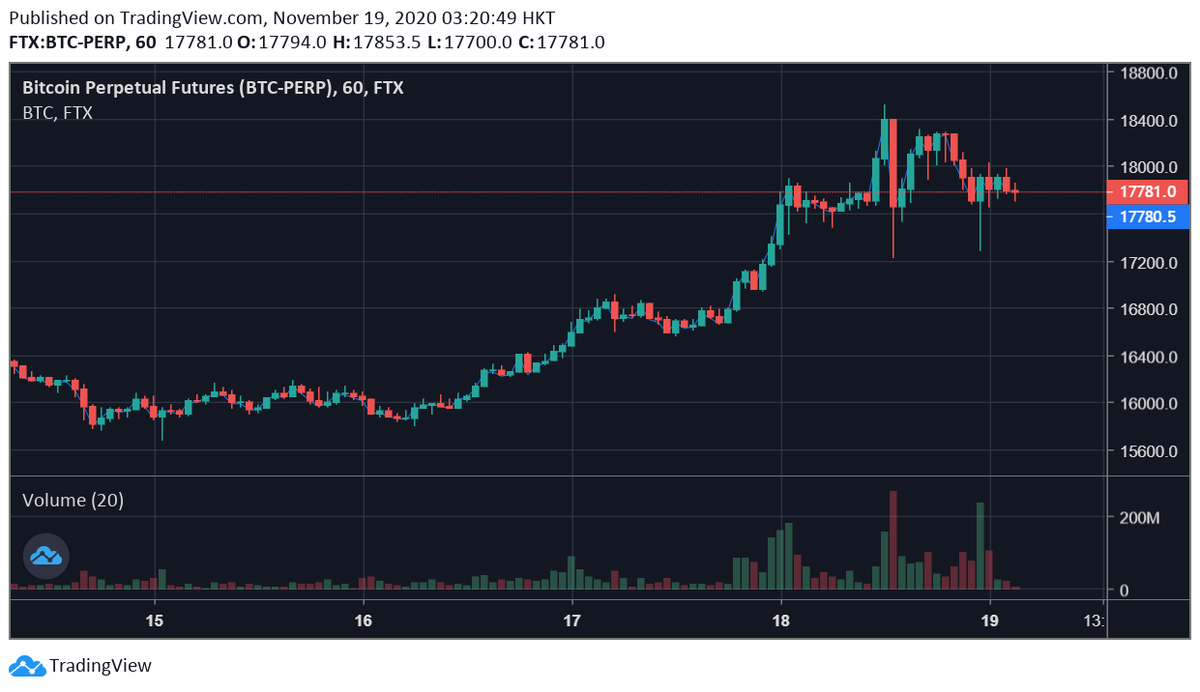
FWIW, this market did end up existing (OTC and a bit otherwise), usually traded around 80 or so. I think the distribution / cost of capital outlined in my thread was pretty reasonable but the risk of ruin estimate was REALLY high -- I think markets were WAY too low.
https://twitter.com/AlamedaTrabucco/status/1318234398475497477
That's understandable, FWIW! Anyone selling their OKEx capital below fair was just buying insurance, and insurance has to trade at a premium to make sense for all involved. The premium in this case seemed to be like 10% or something, though -- which is a lot!
There were lots of other cool little effects along the way during the OKEx lockup -- speculation about USDT maybe being guaranteed by Justin Sun or Tether led to a HUGE premium, and similar for a few other coins. Messed up a bunch of indices, too.
And some futures on OKEx ended up trading at predictable-ish premia/discounts to similar products elsewhere as a result of big moves in their underlyings during a period when no one wanted to send in capital.
E.g. if I need more XRP for collateral for my leveraged short XRP futures when XRP goes up, I'm not gonna send it in -- so I've either gotta buy the futures or buy spot, leading to a predictable premium bump in both of those on OKEx.
But yeah, this presented a cool, unique opportunity for trading if you a) felt like you understood the situation better than the market b) had risk appetite and were able to sell insurance and c) were paying attention to second order effects.
Love idiosyncratic stuff like this! And can't wait for the funds to get unlocked soon :P
• • •
Missing some Tweet in this thread? You can try to
force a refresh








